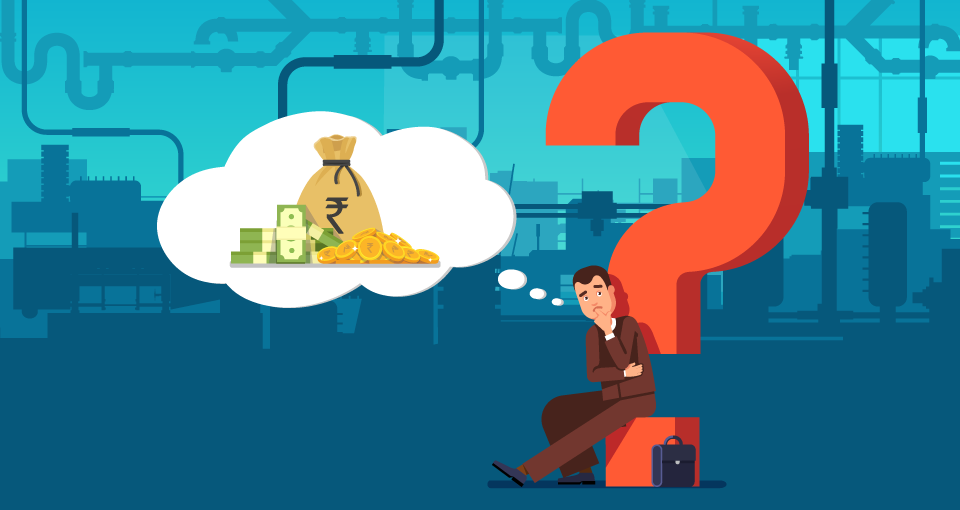Different Types of Loans and How Loans Work

A loan, as you may already understand it, refers to money against an agreement that the loan amount will be returned by a set date, along with interest at a predetermined rate. A loan can be for a specific amount issued as one lump sum, or alternatively – as is in the case of credit cards – a loan can work as an open line of credit up to a predetermined limit.
Read to understand how loans work and to get the answers to top questions related to loans, the different types of loans and handpicked expert tips.
How does a bank decide who is eligible for a loan?
- A bank analyses your debt-to-income ratio and your assets in order to identify whether or not you have the ability to repay the loan amount that you are requesting.
- Your creditor will also check your credit history to decide whether you can be entrusted with repaying a larger loan amount. For instance, your eligibility improves if you have paid off your two-wheeler loan on time and have a credit of above 650.
How can I check if I am eligible for a loan?
Several sites offer loan eligibility calculators to help you determine if you qualify for the loan in question. For instance, you can check your eligibility on the Bajaj Markets website with the help of the personal loan eligibility calculator simply by entering in a few details.
What improves my eligibility to secure a loan?
Timely repayment of credit card bills, any past loans or ongoing EMIs go a long way in scaling up your CIBIL score and therefore your loan eligibility.
What is the exact process of obtaining a loan?
When you apply for a loan, you will make an agreement with your creditor. Your creditor, or the financial institution lending you the money, will set the terms of the loan before any approval takes place. Money will only change hands (or in this case, accounts) once both parties have agreed on:
- Rates of interest and method of interest calculation
- Date or dates for repayment
- How the sum will be disbursed, that is as a one-time amount, in several installments, or as a line of credit (in which case limits will also need to be decided upon)
- Collateral against which the loan is to be issued, if any
Why do banks even give out loans to us? What’s in it for them?
The interest and fees earned on loans is a sizable revenue generator for banks. Large corporations and the government, too, offer loans to cash in on profits that can be reaped from issuing various types of loans.
Why does the government support loans?
Loans act as a catalyst to economic growth, providing stimulus to new and nascent businesses. Startups and SMEs can get off the ground only if the government and relevant financial institutions can offer them financial support.
Existing businesses are also allowed to grow due to the availability of financial credit.
In both cases, the businesses in question can first establish profits and then repay their debts once the new business (or expanded business centers) begins to thrive.
What are the various types of loans? Which one is best for me?
There are several ways of segregating the various types of loans. We will look at loans as secured vs unsecured and revolving versus term loans:
Secured versus unsecured loans
Loans that are issued against collateral are secured loans. Home loans, vehicle loans are categorized as secured loans. Because these loans are usually for large amounts, the lender or creditor, safeguards his risk by signing against collateral as the collateral can be repossessed in case the loan applicant does not end up paying their debt.
Business loans and personal loans can be secured or unsecured. Since there is no collateral signed, your credit history will play an important part in deciding not only whether you get a loan but also the rate of interest that will be offered by the lender. In order to maintain a good credit score, the borrower should take out a healthy mix of secured and unsecured loans.
Term loans versus revolving loans
A term loan refers to a loan that has a specific date for repayment. A home loan is a secured term loan. A personal loan is an unsecured term loan.
A revolving loan is a one where you receive a loan amount that you spend, repay and then continue to spend and repay, hence begetting the name revolving. A credit card, therefore, is a revolving loan. On the other hand, a car loan is a term loan.
What should I watch for when securing a loan and choosing a creditor?
Now that you’ve understood how loans work, you can get started on pinpointing the ideal loan provider and loan scheme. Today, all the different types of loans can easily be obtained by applying online on platforms like Bajaj Markets. Applying online is easily accessible and more convenient – it makes sense to opt for a lender who offers you this service.

To avail of a personal loan at low-interest rates, you can apply for the Bajaj Finserv Personal Loans on Bajaj Markets. The personal loans on Bajaj Markets are unsecured term loans that can be availed of for a variety of purposes, including but not limited to travel, education and marriage. You can benefit from loan amounts as high as Rs. 25 lakhs with flexible repayment tenures ranging from 12 to 60 months. Moreover, your loan can be sanctioned in as less as 3 minutes and disbursed to your account in a span of 24 hours.
Blog Categories
Enter Your OTP



